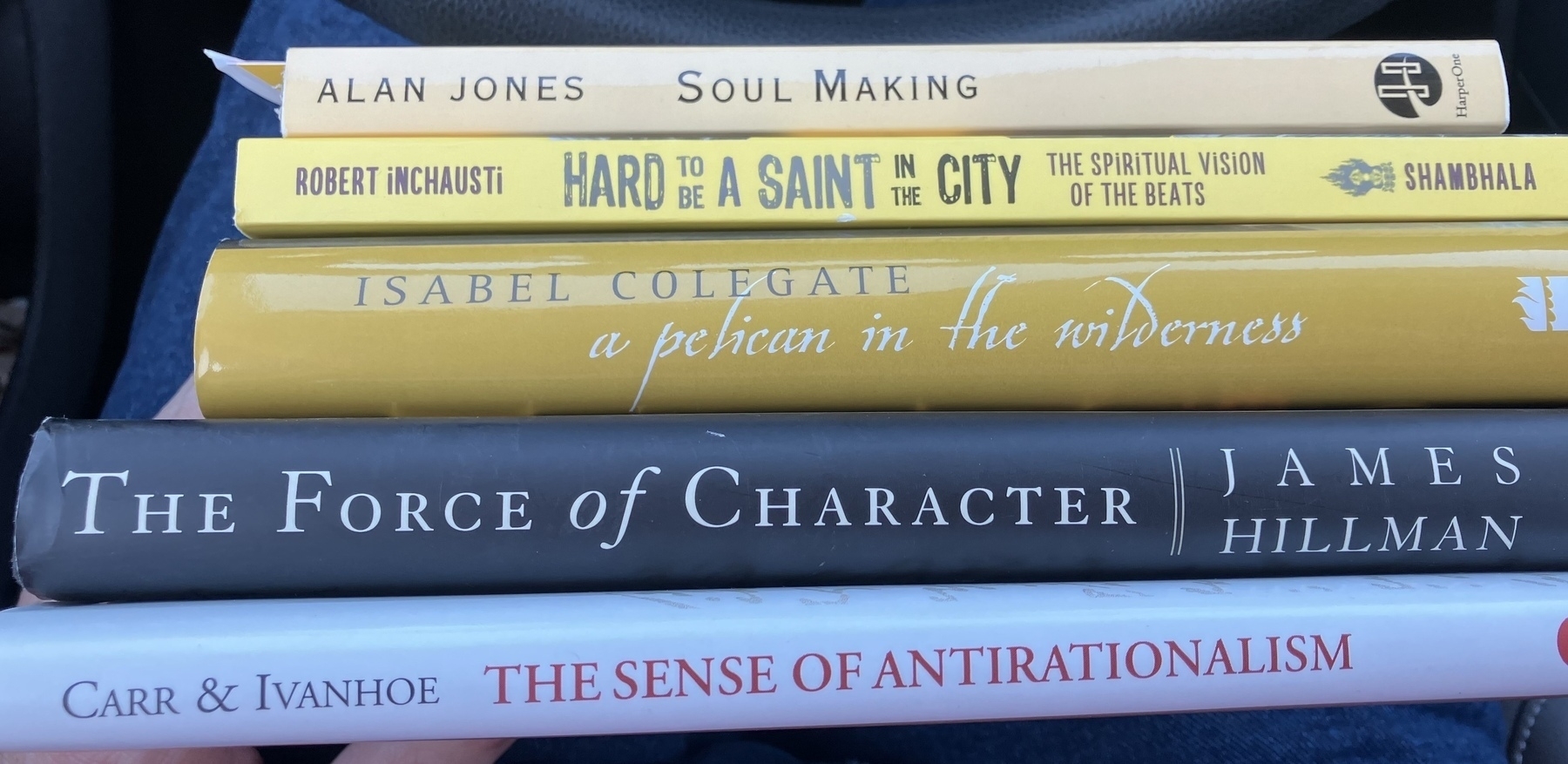Hopefully I’ll get back to the “These Weird Times” series at some point soon. When I said a few weeks ago that I was about to do my annual post-audit reboot, this one ended up being more extensive than usual. I’m working on some personal issues that have me doing some very useful exploring–and the more theoretical exercise of something like “These Weird Times” would be too tempting to use as an escape from the more emotional and spiritual work that I need to focus on for now. I don’t know how much I’ll write about that work but hopefully I’ll come through the other side a bit more integrated than I have been. Sacrifices of goats to chthonic deities welcome–or whatever is more your style.
Many thanks to @johnbrady for calling this to my attention in a comment on my earlier post
Conscientious Objector
Edna St. Vincent Millay
I shall die, but
that is all that I shall do for Death.
I hear him leading his horse out of the stall;
I hear the clatter on the barn-floor.
He is in haste; he has business in Cuba,
business in the Balkans, many calls to make this morning.
But I will not hold the bridle
while he clinches the girth.
And he may mount by himself:
I will not give him a leg up.
Though he flick my shoulders with his whip,
I will not tell him which way the fox ran.
With his hoof on my breast, I will not tell him where
the black boy hides in the swamp.
I shall die, but that is all that I shall do for Death;
I am not on his pay-roll.
I will not tell him the whereabout of my friends
nor of my enemies either.
Though he promise me much,
I will not map him the route to any man’s door.
Am I a spy in the land of the living,
that I should deliver men to Death?
Brother, the password and the plans of our city
are safe with me; never through me
Shall you be overcome.
Once you decide that you are on the side of life, you suddenly have a lot more clarity about thorny issues. Problem is, the side of life is manifestly out of power right now. The powerful–rather, the Powers and those aligned with them–are bent on blood and domination.
I built a candlestick out of a limb that fell from our sweetgum tree in the front yard. The base is made from salvaged door trim. I was slightly concerned that it would catch fire, but so far so good.
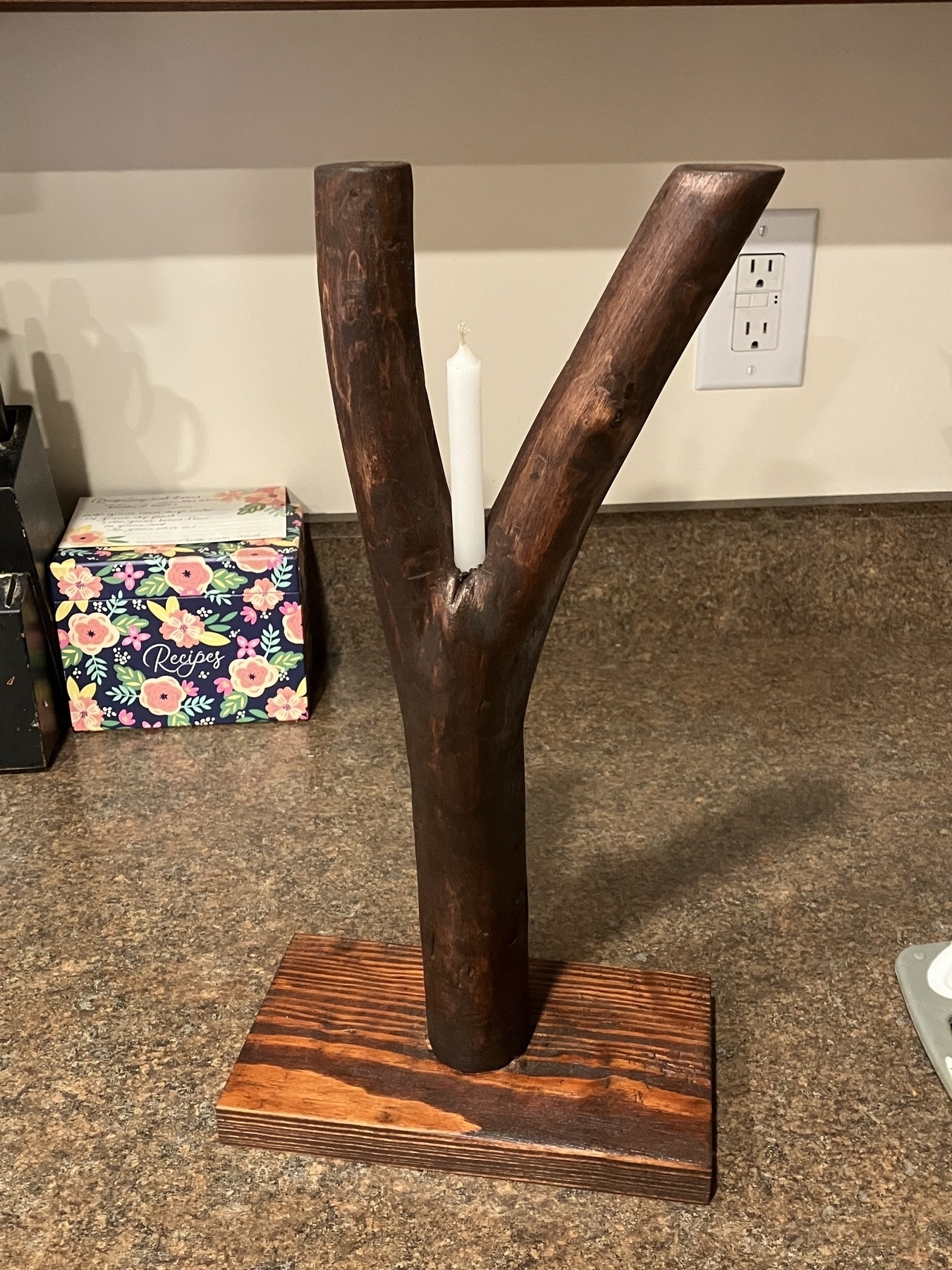
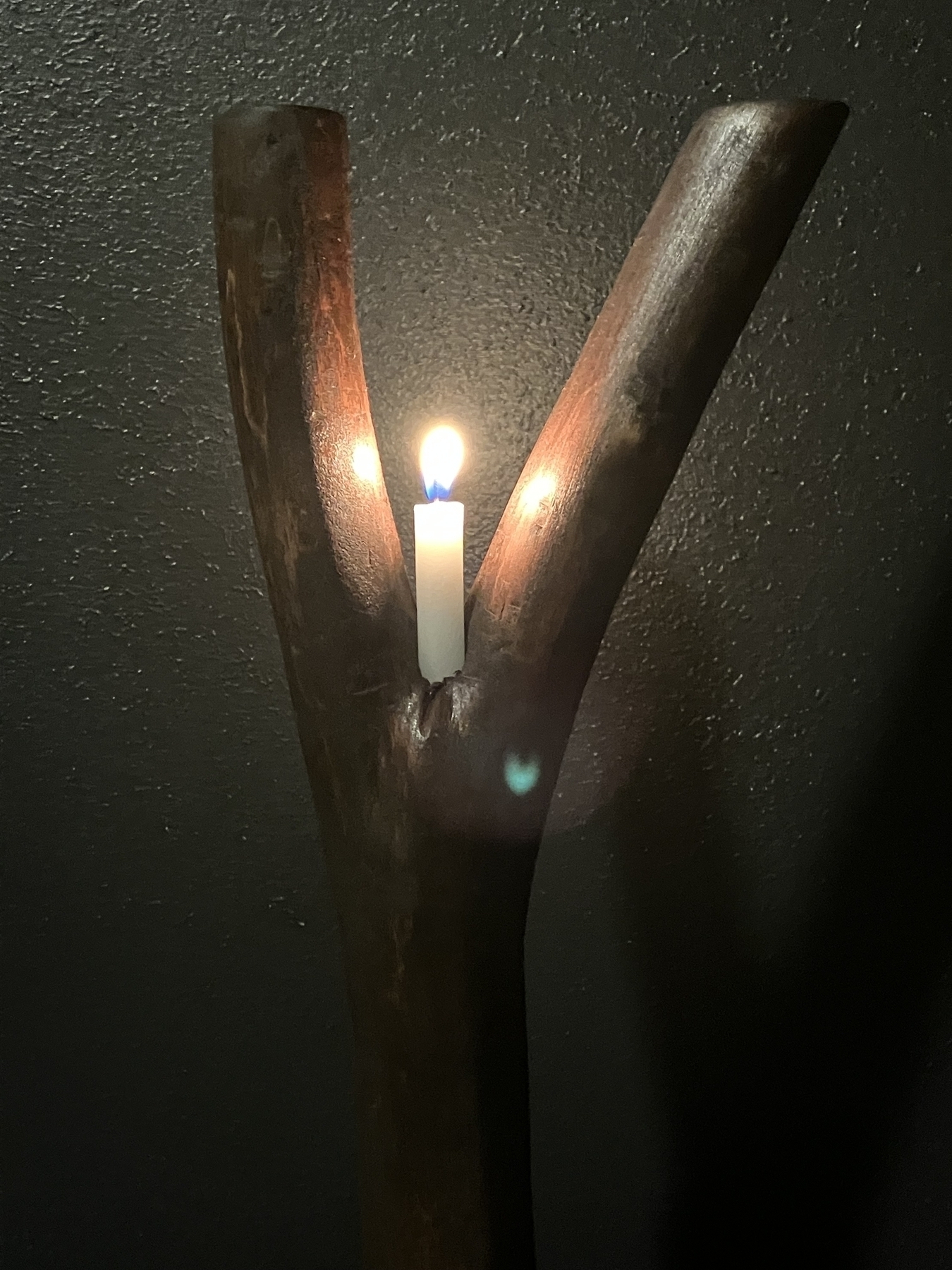
Watched Jim Jarmusch’s Stranger Than Paradise. We used to spend a lot of time doing nothing in the pre-internet days.
U-pick, I pick, we all pick pumpkins. We’ve been doing this ever since Darcy was a baby. We’re not thinking about how much longer this tradition will continue now that Darcy is a senior…
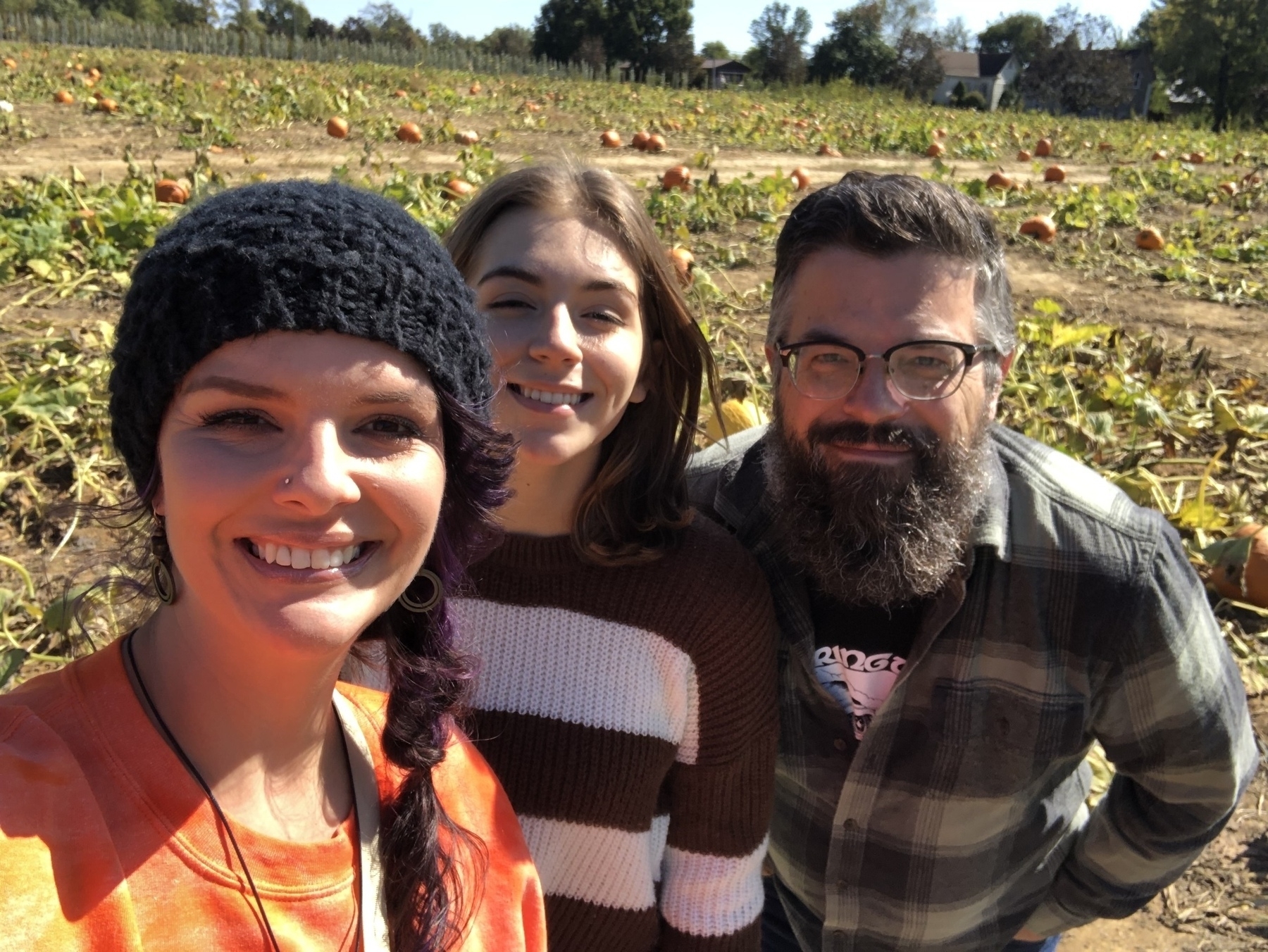
I believe these are red oak acorns. Whether they are or not, I’m processing them using these old farmers almanac instructions.
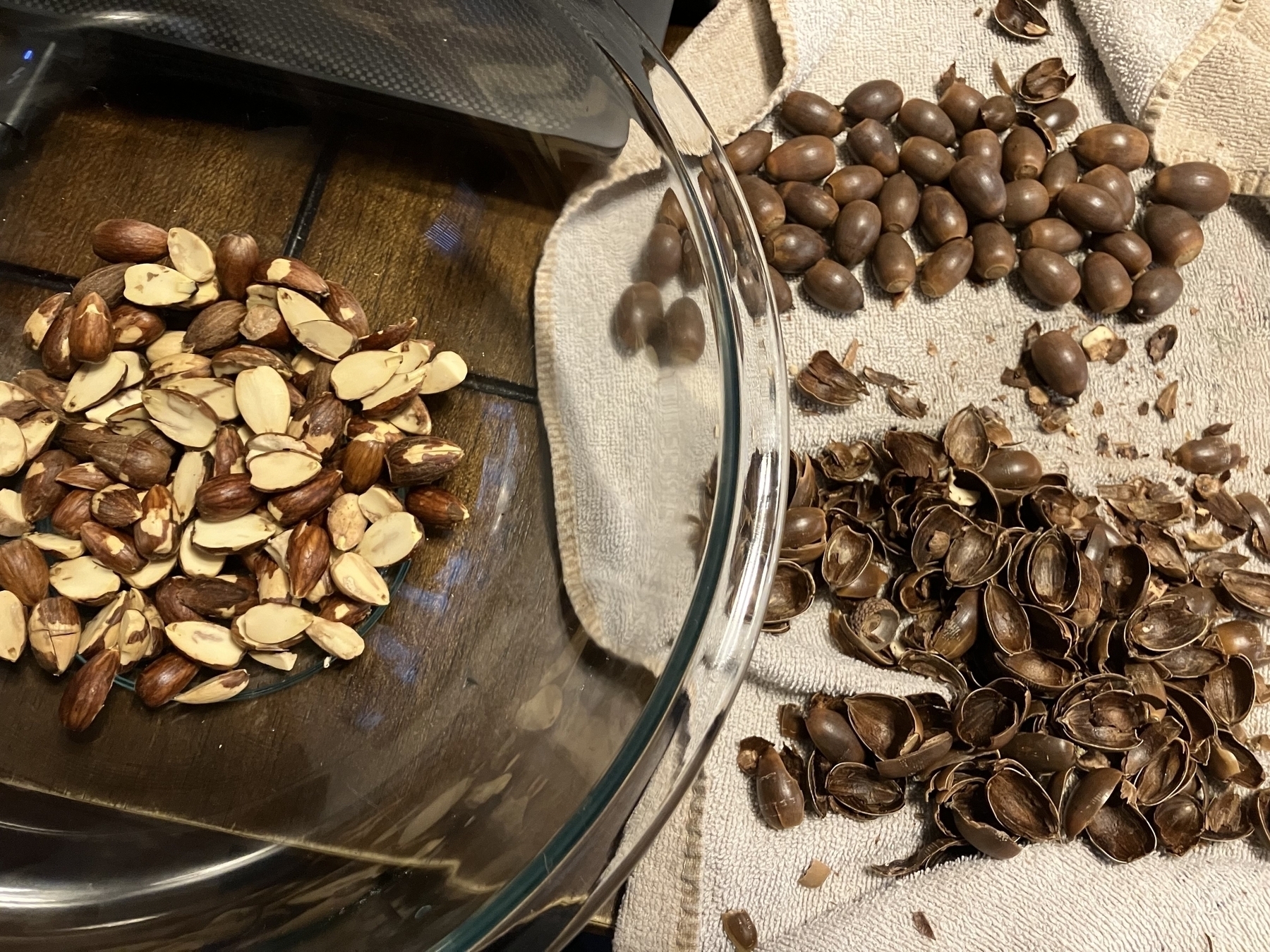
Currently reading Gabor Maté’s book When the Body Says No: Exploring The Stress-Disease Connection. Wonderful book. I’m going to have to make some changes, based on this.
Started using Kagi as my search engine after @JohnBrady recommendation and I’m already getting more fruitful search results on something I’m researching.
Interesting haul at half price books today
